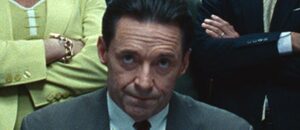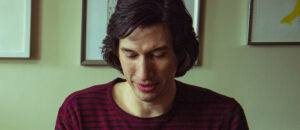'First Reformed'
Movie Rating:
5
It’s been a long road for Paul Schrader to get to ‘First Reformed’, a work that even he admits may not be his last but may well serve as a culmination of his craft. From his earliest days as a seminarian through his screenwriting for the likes of ‘Taxi Driver’ and onto his own long line of films, the iconoclastic talent has been wrestling with common themes of doubt, ennui, sacrifice and the quietude of those grappling with deep existential crises.
Like many of his fellow investigators into the human condition, be they filmmaker, writer or philosopher, Schrader’s works contain many echoes. It’s easy to see specific references that ‘First Reformed’ draws from well-known works like ‘Taxi Driver’ – from a shot of a pepto-and-booze glass (Scorsese’s own shot a reference to Godard, creating an even broader constellation of connections), to loads of shots of a protagonist looking into a mirror to both bolster courage and summon inner demons.
The story of ‘First Reformed’ follows Toller (Ethan Hawke), a former military man who dons the cloth of a preacher and works at a small church known more as a tourist stop than a vibrant congregation. When counseling the husband (Philip Ettinger) of a particularly sensitive congregant (Amanda Seyfried), Toller becomes wrapped up into questions of environmental Armageddon, our responses to a decaying world, and just what kind of reaction this drama warrants.
Schrader’s work is deeply disturbing while never succumbing to bland nihilism. The questions it raises require far more attention than mere anarchic disengagement. It’s a film of enormous depth but never veers into being pretentious. Its sobriety never masks incoherent pontifications. This is a work of near astonishing maturity. The well-honed script feels like a kind of prayer, with its epistolic, epistemological and ethical ruminations proving to be evocating and transfixing.
Hawke has rarely been better, inhabiting the role with pitch perfect precision. Seyfried too is an exceptional choice, her wide eyed visage highlighting her steely gaze, providing both strength and fragility in equal measure.
The film has numerous additional references to make any cinephile giddy. It’s no surprise to find Tarkovsky, Bresson, Dreyer and Bergman explicitly called upon, given that they’re fellow travelers in this kind of cinematic journey. Yet Schrader’s film feels very much its own, and while the tunes may call attention to previous songs, this is a work that feels simultaneously classic and extremely contemporary.
A bold, brash film that has the energy of a young person’s work, it’s a wondrous gift that at this stage in Schrader’s career the wily old filmmaker can bring forth something so impeccable. This may well be Schrader’s masterwork, a final chapter that caps a career with an intoxicating and unforgettable piece. There may be more to come, but it’s easy to declare ‘First Reformed’ the best film that Schrader has helmed, and it may well in time be considered one of the finest of this or any other decade.






Bolo
I’ll probably check this out. It sounds good. I don’t really keep tabs on Schrader these days. The last fifteen years haven’t exactly featured a lot of well-regarded output from him, and ‘The Canyons’ was bad enough to make me give up on even paying attention to him. But maybe he’s got one last hoorah in him.
Also, your reviews are pretty good so far. I was worried they wouldn’t be able to replace Phil with anybody worthwhile, but you’re working out nicely.